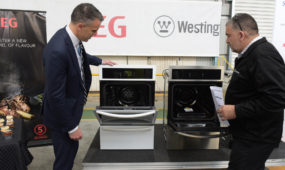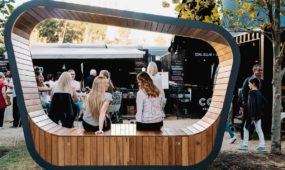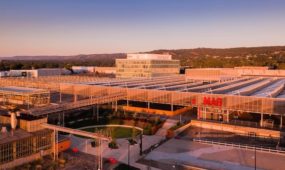Car workers find new start in cyber security manufacturing
Manufacturing
The process driven expertise of former car industry workers is proving to be a valuable asset in the world of hi-tech advanced manufacturing.

Sign up to receive notifications about new stories in this category.
Thank you for subscribing to story notifications.

Melbourne-based cyber security company VeroGuard Systems announced in November it would build its global advanced manufacturing centre in Adelaide’s northern suburbs to securely produce its VeroCard technology.
The $57.5 million investment, supported by Investment Attraction South Australia, was announced just s few weeks after Holden closed its nearby Elizabeth assembly plant, effectively bringing an end to car manufacturing in Australia.
VeroGuard quickly appointed a number of ex-auto workers to key management positions and is on track to employ 60 former car industry staff in the first half of 2018. The company plans to have a temporary facility up and running by the middle of the year while the new building is constructed. The manufacturing centre is expected to open around the middle of 2019.
It initially planned to reach almost 600 employees in Adelaide within three years but now expects that growth number could be as high as 1500.
VeroGuard has developed a unique technology that enables online authentication and encrypted transmission across fixed and mobile networks with military and banking level security.
Co-Chief Executive Nic Nuske said he was impressed by the ability of the former car industry staff to quickly find production improvements despite not knowing much about the product.
“Within a relatively short period of time there were two of them who came back and said ‘we think you can improve your process and product by doing the following’ … and they were spot on,” Nuske said.
“So within a very short period of time their capability, experience and skill and also their desire to innovate and not be frightened of saying there’s a better way to do this was bringing value back to us.
“It went beyond our expectation that that would happen so quickly even though we’d hoped for it but it’s quite exciting for us to see things like that realised fairly early on.
“The lateral thinking of how they applied that knowledge into something that they really didn’t know almost anything about was really impressive – that’s often where your best innovation comes from.”
VeroGuard has since collaborated with two separate South Australian-owned businesses OpSys and LVX Group to develop services for small businesses looking to win defence work and smart cities rolling out Internet of Things technologies.
It has also entered a research agreement with the University of Adelaide and secured new commercial contracts, including with a Federal Government agency and a number of local city councils.
Nuske said South Australia’s strong defence industry links, skilled workforce, logistics capability and focus on the Internet of Things made Adelaide an “obvious choice” for VeroGuard’s Advanced Manufacturing operations.
“The significant growth of defence and the kinds of people and companies it was attracting were very well aligned to us and the community we want to be a part of,” he said.
“South Australia has now become very core to our business and it’s going to deliver elements that are going to be critical to our success.”
VeroGuard is not the only South Australian company looking to former car workers to streamline production processes.
Medical device company Micro-X is manufacturing its hi-tech, lightweight x-ray machines at the Tonsley Innovation Hub in Adelaide’s southern suburbs.
About half of its 21employees are former Holden workers.
Micro-X Managing Director Peter Rowland described Holden as the “university of manufacturing”.
“I’d always been very impressed with what they do at Holden, the work ethic and just the fact that everybody there was trained and completely focused on the quality, the predictability and the efficiency,” he said.
“That’s not something that’s been often applied to medical devices.”
Jump to next article




